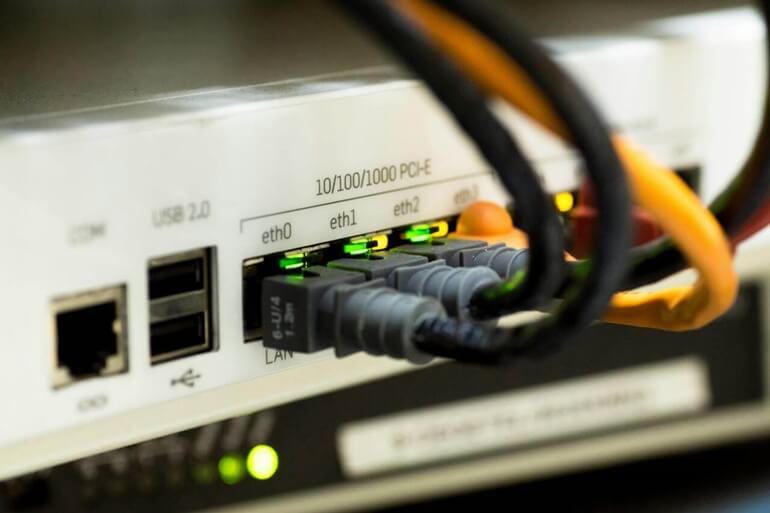What is DSL?

Digital Subscriber Line (DSL) technology is a pivotal advancement in the realm of internet connectivity. Unlike traditional dial-up services, DSL offers a faster and more efficient means of accessing the internet using existing telephone lines. This article delves into the intricacies of DSL, addressing its connection, network structure, full form, and the essential components like DSL modem and cable, with a particular emphasis on its role as a broadband solution.
DSL Meaning
DSL technology has revolutionized the way we access the internet by transforming standard telephone lines into conduits for high-speed data transmission. This innovation stands out from older internet technologies due to its ability to simultaneously transmit both voice and data signals. This unique feature ensures that telephone services are uninterrupted even as the internet is being used, a significant advancement over the dial-up connections that monopolized phone lines.
The capability of DSL to handle dual functionalities of voice and data over the same line makes it a preferred choice for both residential and business users. It strikes a perfect balance between efficiency, by offering high-speed internet access, and convenience, by keeping the phone line free for voice calls. This blend of features has cemented DSL’s position as a key player in the broadband internet landscape, providing a reliable and accessible option for users in various settings.
DSL Full Form
The term DSL stands for “Digital Subscriber Line.” This nomenclature is rooted in the technology’s fundamental function – to convert existing analog telephone lines into digital high-speed data pathways. The “subscriber line” part of the name indicates that the technology is used on the individual lines of subscribers, typically ordinary telephone lines that connect homes and businesses to the telephone company’s central office.
How DSL Works?
DSL leverages the higher frequency bands of copper telephone lines to transmit data. This unique approach allows the internet and telephone services to coexist on the same line without interference. The core components of a DSL connection include a DSL modem, which modulates and demodulates the data signals, and a DSL cable, responsible for connecting the modem to the telephone line. This setup ensures that users have a dedicated, uninterrupted line for internet access.
DSL Network Explained
In a DSL network, each user is connected via a dedicated copper line that runs from their home to the telephone company’s central office. This direct line ensures a stable and secure connection. At the central office, these individual lines connect to a DSL Access Multiplexer (DSLAM), a device that combines multiple DSL connections for streamlined internet access. This network structure is crucial for maintaining the quality and speed of the DSL internet service.
DSL Connection Types
DSL comes in various forms, each tailored to specific needs:
- ADSL (Asymmetric DSL): Commonly used in residential settings, ADSL offers higher download speeds compared to upload speeds, catering to typical household internet usage patterns.
- SDSL (Symmetric DSL): Ideal for businesses, SDSL provides equal upload and download speeds, facilitating activities like video conferencing and large file transfers.
- VDSL (Very High Bitrate DSL): A more advanced form, VDSL offers significantly faster speeds but is limited by shorter operational distances.
DSL Modem
The DSL modem plays a crucial role in a DSL connection. It acts as a bridge, converting digital data from your computer into a signal compatible with the telephone line and vice versa. The modem also determines the maximum speed of the internet connection, based on the DSL technology in use. It’s an indispensable component that makes high-speed internet access via DSL possible.
DSL Cables
DSL cables are specifically designed to carry high-frequency data signals over long distances with minimal signal loss. These cables connect the DSL modem to the telephone network, ensuring that the data transmission is both swift and stable. The quality of the DSL cable can significantly impact the overall performance of the DSL connection, making it a vital component of the DSL setup.
WiFi vs DSL
While DSL is a method of connecting to the internet via telephone lines, WiFi refers to a wireless technology that allows devices to connect to a local internet network without physical cables. Here’s a comparison:
- Connection Type: DSL is a wired connection, while WiFi is wireless.
- Speed: DSL speeds depend on the type of DSL technology used and the quality of the phone lines, whereas WiFi speed can be influenced by factors like router capability and signal interference.
- Stability: DSL connections are generally more stable as they are not prone to wireless interference, whereas WiFi can be affected by physical obstructions and other wireless signals.
- Range: DSL can be used anywhere as long as there is a telephone connection, while WiFi has a limited range around the router.
- Usage: DSL is ideal for a permanent, stable internet connection, especially in areas without high-speed cable or fiber options. WiFi offers flexibility and mobility within its range, suitable for devices like smartphones and tablets.
DSL stands as a robust and reliable solution for high-speed internet access, particularly in areas where fiber-optic or cable internet is not available. Its utilization of existing telephone infrastructure makes it a cost-effective and widely accessible option. As technology evolves, DSL continues to adapt, offering varying speeds and types to suit different user needs, from basic browsing to high-demand business operations. WiFi, on the other hand, complements DSL by providing a convenient and flexible way to connect multiple devices wirelessly within a localized area.

